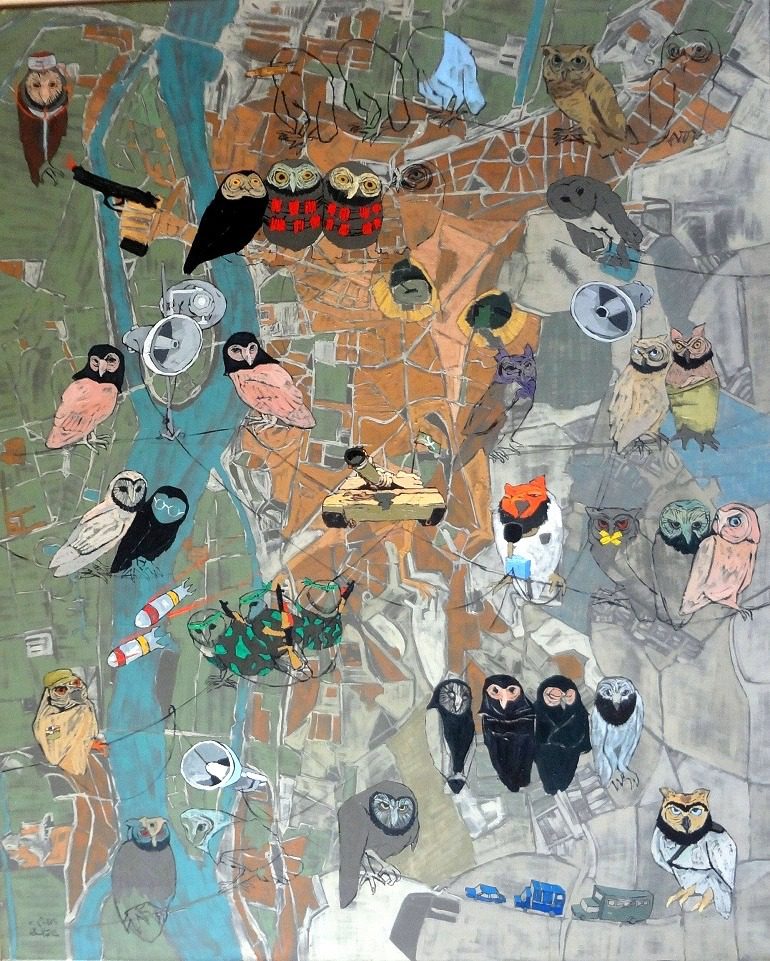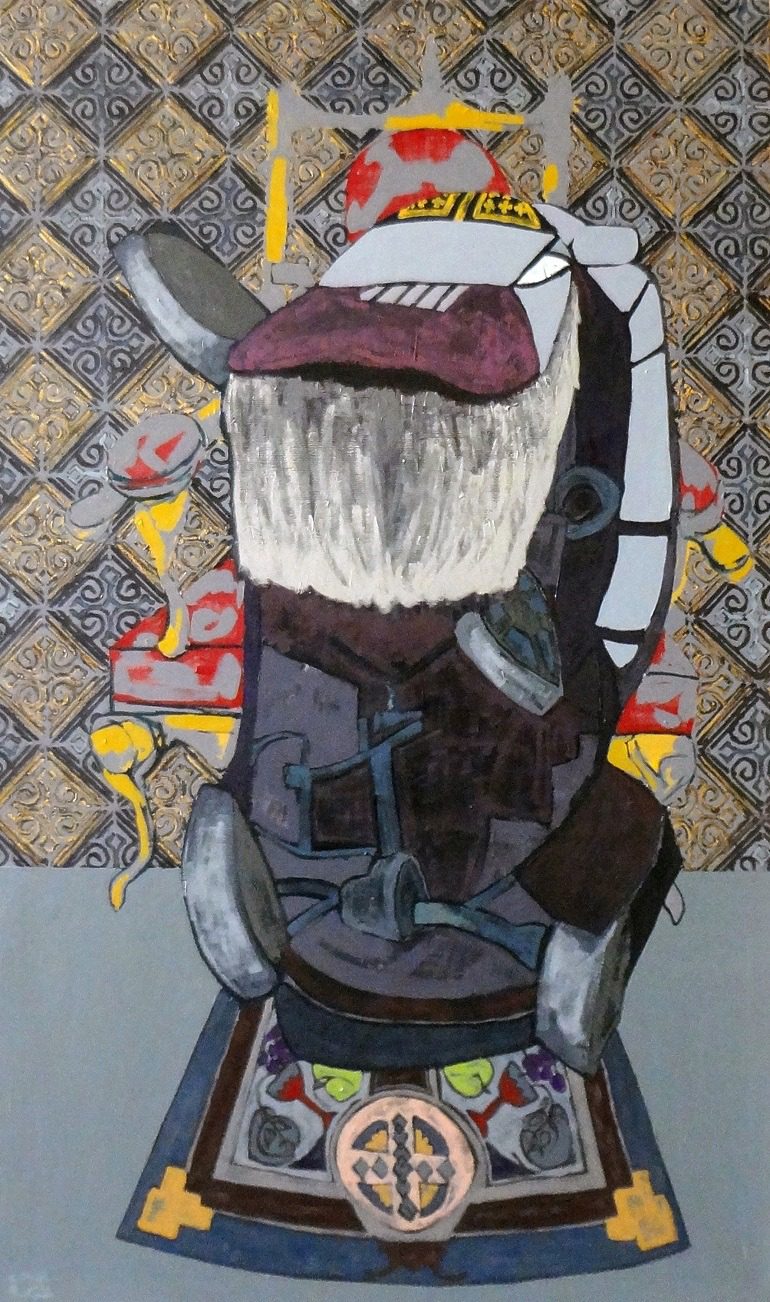ARTCENTRON CELEBRATED
Dark City, an Oil on canvas by Ahmed Kassim reveals development in Modern Day Egypt. Image: Safarkhan Gallery
ARTCENTRON CELEBRATED
Ahmed Kassim, a young talented Egyptian artist with outstanding creative abilities examines a chaotic and Unpredictable Life in Modern Day Egypt in his new paintings on display at Safarkhan Gallery
EGYPT—Ahmed Kassim is a young contemporary artist that has shown great talent and creativity in creating a world entirely his own. Kassim adds a subtle sense of humor to his subjects. Mixed with intricately woven webs of details, he captures the chaotic world around Egypt.
His ability lies in the tenacity to defying large canvases. He effectively controls this large space, creating a multitude of sarcastic details from an unusual perspective. Kassim’s work reveals itself through his own beliefs and understanding of the world around him, thus, resulting in a convincing conceptual work.
In his works currently showing in Safarkhan Gallery, he uses the widely known rubrics of games such as snakes and ladders and Pac-man to symbolize how life in Egypt is exactly like a game, where individuals are subjected to the forces of good or evil in their daily lives. He reveals with his paintings how chaotic and unpredictable life has become in modern-day Egypt.
For Kassim, there are no innocent games: “We used to go through different levels, seeking power, and there’d be a villain we have to beat.”
Sara El Kamel describes Kassim’s works:
We witness again his humor to express otherwise a negative subject matter. Within his use of board games Kassim portrays the staples of modern and current Egyptian society; the money signifying corruption, the TV news constantly on informing the people in their homes though not necessarily with credible and truthful information (another irony that is explored in his work), bread rolls and loaves which are the basic means of food for the Egyptian population because of its cheap and accessible nature as well as the bastions of riot police, which Kassim includes in his work to show that the state and government is always vigilant and keeping an eye on its people to root out dissidents. There is also a large red chair that is symbolizing the ‘throne’ that is actually the seat of Egypt’s president, who because of its corruption has become more of a monarch with absolute power in the people eyes rather than a democratically elected patron.”




